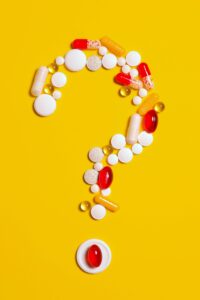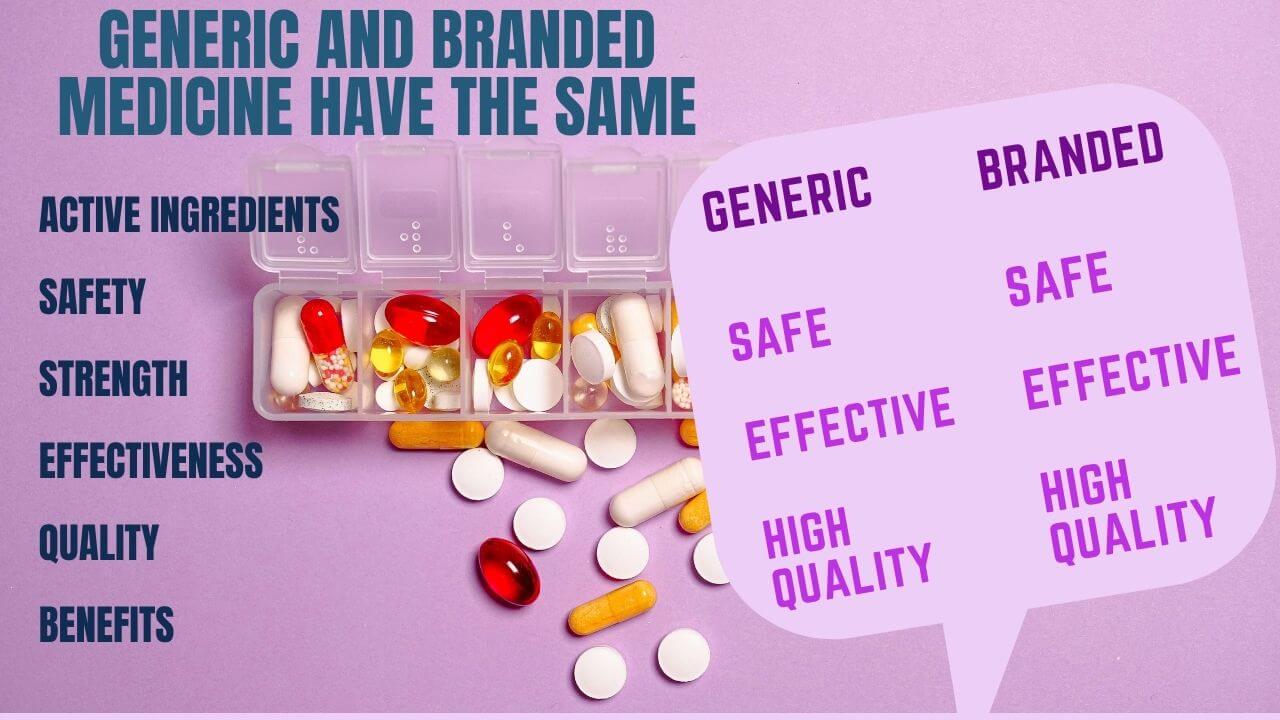Generic Medicine: 10 Myths vs. Facts
Whenever we get sick, first thought that comes to mind is medicine. We always get worried not only due to the bitter taste of medicine but the cost of the medicine. As far as medicine is concerned, I would suggest thinking about taking generic medicine over branded medicine which will help the majority of the population to control out-of pocket expenses. According to Published research in 2017, they mentioned facts about generic medicine. Based on this article, we have discussed in this post about Generic Medicine: 10 Myths vs. Facts in detail.
In the field of pharmaceuticals, the easy availability of generic medicines has been a game changer for both patients and healthcare systems. Generic medicines are less expensive than branded counterparts, making vital treatments more accessible to a larger population. However, there are a lot of myths about generic medications that could make buyers doubtful and confused. In this post, “Generic Medicine: 10 Myths vs. Facts” we will debunk these myths and shed light on the facts about generic medicines so that you can have a better grasp of their safety, efficacy, and benefits. Understanding the truth regarding generic medicines is important for making informed healthcare decisions. So, let’s look at the myths and facts around these low-cost options.
Understanding Generic Medicines

Before we get into myths and facts, let’s define generic drugs. Generic drugs are manufactured in identical dosage forms, safety, strength, route of administration, quality and performance as an existing approved Brand name drug., but they are not sold under the brand name. A generic medicine is manufactured without a license from the company that invented it. Once the patent on the original brand-name drug has expired, they are produced and sold at lower prices. Generic medicines are therefore less expensive than their brand-name counterparts. Generic medicines are an attractive choice for both individuals and healthcare professionals due to their affordability. Let us understand with an example: A generic drug, one used as an analgesic, antipyretic is “Paracetamol” and the brand name available in the market for paracetamol is Calpol. The generic drug used for hypertension is metoprolol, A brand name for metoprolol is Lopressor.
The Misconception Around Generic and Branded Medicines:
1) Myth: Generic and Branded medicine contains different active ingredients.
Fact: Generic medicine contains the same active ingredients just as branded drugs.
2) Myth: Generic medicines are likely to cause more side effects compared to Branded.
Fact: Any type of medicine, if it is generic or branded, is likely to cause side effects. The side effect caused depends on the patient’s clinical conditions and response to the chemical compound present in the drug. It is not true that only generic drugs cause side effects.
3) Myth: Generic drugs are less expensive because they are inferior variations of branded medicine.
Fact: Generic medicines are just as effective as branded and both medicines contain the same active ingredient. The cost difference in both medicines has nothing to do with generic medicine being inferior to branded medicine. Marketing, Branding, advertising, research and development highly increase the cost of branded medicine.
4) Myth: Branded drugs are safer than Generic drugs.
Fact: Generic drugs are safe. FDA (Food and drug administration) and other regulatory organizations would not permit the sale of unsafe medication to the population. Branded and Generic medicine makes use of the same active ingredient and the only difference is in the formulation.
5) Myth: Generic drugs are less effective and potent as compared to Branded medicine.
Fact: Generic drugs are equally potent and effective as branded drugs. Branded and generic drugs have to pass strict quality control measures, during the process of production as per the standard guideline of FDA and regulatory authority.
6) Myth: Doctor who prescribe branded medicine means they should be more effective.
Fact: Doctors often prescribe branded medicine that doesn’t mean generic medicines are less effective. Patients should have to ask for alternative generic medicines if the doctor prescribed branded ones.
7) Myth: Generic drugs should be taken in high doses or for longer durations as compared to branded drugs to be effective.
Fact: One should take the recommended dosage of a drug only. If you are not sure about the dosage of your medication, then consult your doctor. Generic and Branded drugs carry the same dosage and duration.
8) Myth: It is not luxurious to buy generic drugs because they are “cheap”.
Fact: Buyers would get equally important value at cheaper rates if they purchased generic over branded. Generic drugs and syrups are as safe and effective as branded drugs. Economically weak people could secure treatment for various medical conditions by purchasing generic drugs from Generic Drugstores.
9) Myth: Multinational pharmaceutical companies do not manufacture generic drugs.
Fact: Generic drugs are manufactured by multinational pharmaceutical companies and are available as package products same as branded ones.
10) Myth: Generic and Branded medicine are different from each other.
Fact: The only difference between generic and branded medicine is in the packaging, color and inactive ingredients e.g., flavors, filler, coatings and binder.
Advantages of Generic Medicine:
- Generic drugs are equivalent to Branded drugs.
- Multinational pharmaceutical companies manufactured Generic drugs.
- Generic drugs are cheap; it saves patients money.
For instance, the brand Azikem (Azithromycin) 500mg tablet (3’s unit pack size) costs Rs. 62.56 and generic Azithromycin 500 mg tablet (3’s unit pack size) costs 42.00Rs. Hence the difference between branded and generic drugs is Rs. 20.56.
- A generic medicine is affordable to patients thus reducing the financial burden as well improves the adherence of patients.
Frequently Asked Questions
Q. Why Doctors don’t prescribe generics?
A. Some doctors refuse to prescribe generics because they have financial ties to a pharmacy or pharmacy companies, or they have family who own pharmacies. However, some medical professionals disagree with the commission and think that generic medicines are ineffective for treating symptoms within a few days.
Q. Are generic drugs safe for long-term use?
A. Yes, generic medicines are safe for long-term use when taken as advised by a healthcare expert.
Q. Are generic medicines as effective as brand name drugs?
A. Yes, generic medicines must be bioequivalent to brand-name medications to ensure equal efficacy.
Q. Are generic medicines as effective as branded drugs?
A. Yes, generic medicines are as effective as branded drugs. They contain the same active ingredients and undergo rigorous testing to ensure their quality and efficacy.
Must Read >>
